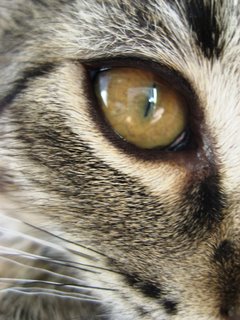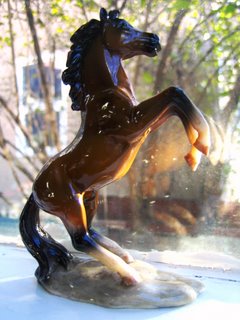 You are calling my phone again, but you never call twice, and I miss your call. I always seem to miss your call, and when you do not call me, I miss you calling me. The cellphone is flashing again, on the corner of the pale ceramic counter which floats in the shadows on either side of the sink, and I reach for the phone, but I have missed your call again. Call me again. I am standing in line with a loaf of French bread in my hand, a plastic bag of frozen peas, vine-ripe tomatoes, a jug of cranberry juice, I am fumbling for the phone in the pocket of my jeans, but I miss the call. You are calling me. You are calling me from your philosophy class and the labyrinth of the categorical imperative. You are calling me from the sale at the music store in the mall, from a clothes rack at H&M, you are calling me from your car and I am at the bus-stop, it is raining, it is snowing, it is sunshine and blazing, and you are calling me. I spill my thin styrofoam cup of chai, I drop my phone in the gutter by the wheel of the bus, I have missed your call. Call me again, call me, please. Call me, please, again.
You are calling my phone again, but you never call twice, and I miss your call. I always seem to miss your call, and when you do not call me, I miss you calling me. The cellphone is flashing again, on the corner of the pale ceramic counter which floats in the shadows on either side of the sink, and I reach for the phone, but I have missed your call again. Call me again. I am standing in line with a loaf of French bread in my hand, a plastic bag of frozen peas, vine-ripe tomatoes, a jug of cranberry juice, I am fumbling for the phone in the pocket of my jeans, but I miss the call. You are calling me. You are calling me from your philosophy class and the labyrinth of the categorical imperative. You are calling me from the sale at the music store in the mall, from a clothes rack at H&M, you are calling me from your car and I am at the bus-stop, it is raining, it is snowing, it is sunshine and blazing, and you are calling me. I spill my thin styrofoam cup of chai, I drop my phone in the gutter by the wheel of the bus, I have missed your call. Call me again, call me, please. Call me, please, again.
"Umbrella" + Scott Simon Searching for illScarlett's version of Rihanna's hit single, I came across this version on some blog or other—and apologies to that blogger, whoever you are, because I can't remember where you are, anymore—the internet is wide. Anyways, this is Rihanna covered by a clean-living lounge singer, a man who has only one white blazer but carefully irons the lapels a couple times a week. He lives alone, in a small brick walk-up, and there are autumn leaves on the cobbled road outside. He waters his one plant, a large Boston fern he has had since he graduated from that university, and all his friends live in different cities very far away. This song, which was her song, he has made into a different song, not better, not worse, piano instead of hi-hat, him instead of her, and wonderful, of course. For when he opens his mouth, some see song, but others hear an intricate and ancient tapestry of rich hearts and longing hands, soul wide open to bare blue sky and the hail of life's clothyard arrows. No matter, the voice keeps singing, not an impersonal singer in some piano bar on the west side of the city, but a human heart full up to the brim with loving intention, lyrics, voice, hands and heart all saying, "I am here."
Vladimir Nabokov + Pnin This book reads like a Wodehouse novel without the shenanigans or the ridiculous demotic. That is, if Wodehouse's plots get a little bit fishy, then this novel's arc is a fish out of water, ill-at ease, a dead perch on the muddy beach of some Algonquin lake, and with about as much life. Of course, I spent years trying to land yellow perch, smallmouth bass, fresh water ling, anything, really, out of those small dark lakes which cut holes through the floor of the forests north of Toronto. And never got one, not even a pike. Which is to say that I appreciate having read this novel, and that I think Nabokov's subtle use of narrative flatness, his concious uniformity of tone, is a wonderful if rather extended exercise in prose. He's got some whistle-bait bits in here, and the required academia-bashing (Nabokov was a professor, after all) is lovely—
Tom thinks that the best method of teaching anything is to rely on discussion in class, which means letting twenty young blockheads and two cocky neurotics discuss for fifty minutes something that neither their teacher nor they know.
This novel was first published in The New Yorker of the 1950's, and if that doesn't tell you what kind of book this is around the gills, nothing will.














